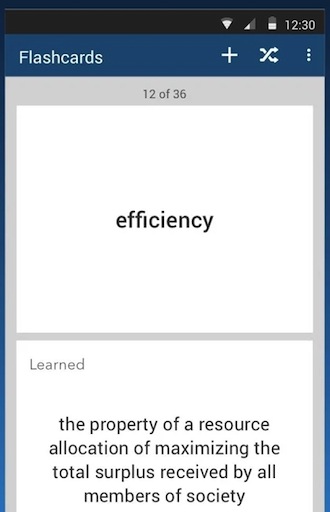Cengage Intros MindTap Apps for Digital Content
- By Dian Schaffhauser
- 09/02/15
 Education publishing company Cengage Learning has launched native mobile app editions
of its digital content platform, MindTap. MindTap is available for 520 of
Cengage's course areas and delivers a number of student functions — reading, homework, quizzes and flashcards. The new
iOS and
Android apps put some of those features
into a mobile form to allow users to access the material on their smartphones in available "pockets of time."
Education publishing company Cengage Learning has launched native mobile app editions
of its digital content platform, MindTap. MindTap is available for 520 of
Cengage's course areas and delivers a number of student functions — reading, homework, quizzes and flashcards. The new
iOS and
Android apps put some of those features
into a mobile form to allow users to access the material on their smartphones in available "pockets of time."
MindTap Mobile is intended to act as a workflow manager for students. They're notified when an instructor sends a message, changes a due
date or alters a grade. They can set reminders for what's due; review prebuilt flashcards or make their own; and take chapter-specific quizzes
or generate self-quizzes from the flashcard deck.
"We set out to create a mobile product that adapts to students' busy lives outside of the classroom," said MindTap Product Director Jared
Mann in a prepared statement. "MindTap Mobile represents a subset of the MindTap experience that students told us would be most useful to have
available right from their phone."
About the Author
Dian Schaffhauser is a former senior contributing editor for 1105 Media's education publications THE Journal, Campus Technology and Spaces4Learning.